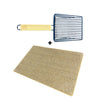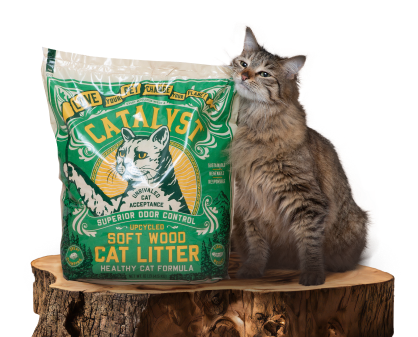How To Choose the Right Small Pet
Maybe you’re looking for a small companion, or your children have been begging for a pet and the timing is right to take the plunge. The joy and companionship that pets bring can be incredibly rewarding, but choosing the right small pet for your family requires careful consideration. Each type of small animal has unique needs and characteristics that may or may not fit well with your household dynamics.
Before deciding which pet is best for your family, there are some general points worth mentioning that are applicable to all the small animals we cover in the rest of this post.
- Adoption Over Purchase: Many small animals are surrendered to local shelters if their owners can no longer care for them. Consider adoption as an option before buying from a pet store or breeder.
- Gentle Handling: Small animals require careful handling and will bite if scared or squeezed. If your young child lacks fine motor skills and the ability for gentle handling, consider waiting until they are a bit older.
- Daily Interaction: All the furry friends we cover below need daily human interaction. Make sure you have the time, energy and space in your home to devote to your future pet. Even the small animals that are mini masters of self-entertainment need your love and care on the daily.
- Maintaining Cleanliness: Cleanliness is next to happiness—for you and your pet! Expect to clean your pet’s cage weekly, and plan to spot clean more often than that. Their sensitive sniffers can detect odors long before humans, so if you notice foul smells coming from the cage, your small pet has been noticing them even longer.
- Costs: Expect to spend several hundred dollars per year on your small pet, including food, supplies and vet visits. Costs for a rabbit can exceed $1,000 per year, so do your homework and ensure you are ready to take on the financial responsibility of a small pet.
By keeping these considerations in mind, you'll be better prepared to choose a small pet that will thrive in your home and bring joy to your family. Now, let’s get into the nitty gritty details of the main small animals that work well as pets.
|
Name: |
Hamster |
||
|
Activity time: |
Hamsters are nocturnal, so beware, light human sleepers! Also, daytime play sessions with your sleepy pet could cause angry or startled behavior and lead to biting. |
||
|
Lifespan (avg): |
2.5 – 3 years |
||
|
Playmates: |
Hamsters are independent animals, and they do not need playmates, particularly Syrian hamsters. Dwarf hamsters can sometimes live in pairs, but it’s not recommended in captivity. |
||
|
Supplies: |
Cage |
Bedding |
Nesting box |
|
|
Exercise wheel |
Food and water |
Hamster chow |
|
|
Treats |
Toys |
|
|
Veterinary needs: |
● Your hamster should be examined by a vet annually. ● No vaccines are needed. ● Neutering males is not routinely performed, so separate males and females if you do not want a litter. |
||
|
Beware! |
Hamsters can carry disease; pregnant women and young children should be aware of this increased exposure risk. |
||
|
Other: |
● Hamsters are great self-entertainers, so make sure they have plenty of toys and opportunities for burrowing and climbing. ● It’s illegal to own a hamster in Hawaii. |
||
|
Name: |
Gerbil |
||
|
Activity time: |
Gerbils are diurnal, which means they’re active during the daytime. |
||
|
Lifespan (avg): |
2 – 3 years |
||
|
Playmates: |
● Gerbils go together like peas and carrots –don’t get just one! But do get a same-sex pair, or else you’ll have more new pets than you can shake a chew toy at! ● Gerbils self-entertain given toys, burrowing materials and climbing opportunities. They also love cage-free time to run in a safe room or designated playpen. |
||
|
Supplies: |
Cage with wire or mesh top |
Bedding |
Nesting materials |
|
Exercise wheel |
Food and water |
Treats |
|
|
Chew sticks (to wear down their sharp teeth) |
|||
|
Veterinary needs: |
● An annual exam and parasite check is recommended. ● No vaccines are needed. ● Neutering males is recommended if you are keeping male and female gerbils together and do not want a litter. |
||
|
Beware! |
Gerbils’ teeth are incredibly sharp and must be worn down by chew sticks. |
||
|
Other: |
It’s illegal to own a gerbil in Hawaii or California. |
||
|
Name: |
Guinea Pig |
||
|
Activity time: |
Guinea pigs are diurnal, which means they’re active during the daytime. |
||
|
Lifespan (avg): |
5 – 7 years |
||
|
Playmates: |
Guinea pigs thrive in pairs, so get more than one if you can. Same-sex pairs are recommended if you don’t want lots of baby pigs on your hands! |
||
|
Supplies: |
Large enclosure/cage |
Bedding |
Hiding Box + Toys |
|
|
Timothy hay |
Food and water |
Fresh veggies and fruit |
|
Veterinary needs: |
● Periodic checkups are needed, and emergency vet care might be needed if your guinea pig has mites, dietary issues or dental problems, to which guinea pigs are predisposed. ● No vaccines are needed. ● Spaying female guinea pigs is not common; males should be neutered to avoid mating if you do not want a litter. |
||
|
Beware! |
● Some people are allergic to guinea pigs, so spend some time with one before you adopt or purchase. |
||
|
Other: |
● Regular grooming is needed. For long-haired guinea pigs, comb daily. Short-haired breeds can be brushed weekly. ● Trim your pet’s nails regularly to avoid the nails growing into the paw pads.
|
||
|
Name: |
Rat |
||
|
Activity time: |
Rats are nocturnal. They’re most active at dawn and dusk. |
||
|
Lifespan (avg): |
2 – 3 years |
||
|
Playmates: |
Adopt rats in pairs or trios, but ensure they’re spayed, neutered, or same sex rodents. |
||
|
Supplies: |
Cage (2.5 ft3 per rat) |
Litter |
Toys |
|
|
Climbing and hiding structures |
Food and water |
Hammock |
|
|
High quality treats |
|
|
|
Veterinary needs: |
● Annual vet visits aren’t required, but plan on veterinary costs as rats are prone to common illnesses that may require professional help. ● No vaccines are needed. ● If you want to keep males and females together, have the male neutered to avoid unwanted pregnancy. |
||
|
Beware! |
● Rats can carry infectious diseases, so they’re not recommended for pregnant women or families with young children. |
||
|
Other: |
● Rats get a bad rap for lurking in sewers and dumpsters, but they are actually meticulous about cleanliness. ● You can train your rat to do tricks, but they’ll probably want a treat afterwards. |
||
|
Name: |
Rabbit |
||
|
Activity time: |
Rabbits are nocturnal. They’re most active at dawn and dusk and dawn. |
||
|
Lifespan (avg): |
10+ years |
||
|
Playmates: |
● Rabbits are social and prefer to live with other bunnies. ● If multiple rabbits are not feasible for your family, prepare to be your bunny’s favorite playmate (similar to the attention you’d give to a pet dog). ● Even with an appropriately sized cage, it’s best to have a room in your home where your rabbit(s) can roam and play freely under your supervision. |
||
|
Supplies: |
Large enclosure placed in a climate-appropriate spot |
||
|
|
Litter box + litter |
Food and water |
Fresh veggies |
|
|
Unlimited hay (this is a rabbit’s main food) |
Chew toys |
Treats: fruit |
|
Veterinary needs: |
● Plan on an annual vet visit for your bunny. ● Vaccines are available and recommended for your rabbit; your vet can advise you. ● More frequent visits may be needed as your pet ages or if they are unwell. ● Neutering and spaying are recommended, as these procedures can eliminate the risk of reproductive cancers that are common in rabbits. They can also reduce hormone-induced behaviors like aggression and urine spraying. |
||
|
Beware! |
● Seeds and nuts are not good for bunnies! ● Carrots are a special treat – not a main food group (sorry, Bugs Bunny!). |
||
|
Other: |
● Rabbits can be litter trained! They also produce a lot of waste, so frequent cleaning will be needed. Types of litter for a rabbit include ones made of paper-based materials, wood pellets or compressed wheat straw pellets, to name a few options. ● Bunnies can only live in outdoor hutches in certain climates, just ensure their quarters are predator-proof. ● Because they’re prey animals, loud noises and sudden movements can scare your rabbit. ● Trim your bunny’s nails regularly.
|
||
|
Name: |
Ferret |
||
|
Activity time: |
Ferrets are nocturnal. They’re most active at dawn and dusk. When not asleep—and they love to sleep—they’re highly active and inquisitive. |
||
|
Lifespan (avg): |
5 – 10 years |
||
|
Playmates: |
Ferrets have personal preference here. Some like to live alone, while others like to have groups or bonded pairs. |
||
|
Supplies: |
Multi-level cage |
Soft bedding like baby blankets |
Litter box + litter |
|
|
Dark places to hide and sleep |
Water |
|
|
|
Food for a meat-based diet (no fruit, veggies, or high carb foods) |
||
|
Veterinary needs: |
● Periodic vet visits are needed to ensure your ferret is healthy. ● Vaccinate your ferret against rabies and distemper, both of which can affect ferrets and, in turn, you and your family. ● Ensure your ferret is spayed or neutered, as this can reduce aggression and the natural drive to mate. |
||
|
Beware! |
● Ferrets require a lot of time and energy to receive proper care. ● They have sharp teeth and may bite if startled. ● Ferrets can behave erratically and should never be left alone with a young child. |
||
|
Other: |
● It’s illegal to own ferrets in some states, including California, Hawaii, New York and Washington D.C. Make sure to check the regulations where you live before adopting or buying. ● Ferrets require grooming, including trimming their sharp nails and occasional bathing and ear cleaning. ● Ferrets have a distinct, musky odor, even after being de-scented. ● Ferrets love to sneak into small spaces. Ensure their cage is secure. |
||
Thirsty for more info about choosing the right small pet or how to care for your small pet? Check out more great information here.














